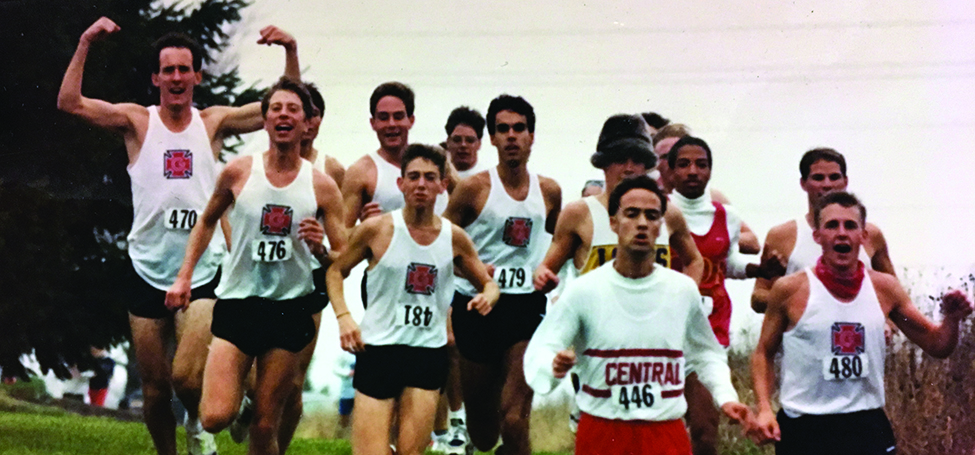
The Running Man
Barry Matchett ’94, director of external affairs for NRG Energy, a power generation company, is running campaigns to promote clean energy development. He also campaigns for running as the secretary of the board for USA Pentathlon, the governing body for the Olympic sport.
When the U.S. Olympic Committee restructured USA Pentathlon in 2008, committee officials asked Matchett, a former pentathlon athlete with the U.S. national team, to join Pentathlon’s board. He later served as board chairman for six years; and now as board secretary, he helps organize fundraisers for the group and advises the board on governance issues.
At NRG, one of the largest owners of solar power projects and wind farms in the United States, he works with coalitions of industrial, environmental, and consumer advocates to create legislation that promotes renewable energy in Midwestern states. His goal, he says, is to lobby lawmakers and “stop bad ideas.”
One bad idea: A move in Ohio to subsidize two outmoded 75-year-old coal plants. That battle he is confident of blocking. However, recent attempts to end subsidies for nuclear power plants in Illinois and several other states ended in defeat.
“Should we subsidize certain types of power, or should we be more concerned with encouraging the development of clean, renewable energy?” he asks, then points out how energy sources like solar and wind power would help stave off global warming.
“Global warming is important to me because I have children, and I’d like to see us leave them a world that’s stable from a climate perspective,” he says. “I want to reduce today’s environmental problems by convincing people in office that we have solutions that work.”
Growing up in Chicago, Matchett had two passions in high school — politics and running. He joined the Model U.N. and the track and swimming teams. He continued running at Grinnell, where he proudly notes, “Our cross country teams won conference championships in all four years I was there. In my junior year, we won the cross country and indoor and outdoor track titles in the same season. My teammates remain some of my closest friends today.”
He credits Grinnell’s “excellent political science program” for his success, saying his instructors taught him to think critically and gave him the confidence to learn how to deal with people. He especially credits Ira Strauber, professor emeritus of political science: “He challenged students to not be sloppy in their thinking and taught in a way to replicate the academic rigor necessary to succeed in law schools. He was a stringent stickler for facts and sharp thinking, and anyone who took his class was made better for it.”
After graduation, Matchett trained for the Olympics at the Olympic Training Center in Colorado Springs, Colo., living at the facility for three years. When he missed the final cut for the 2000 Olympics, he returned to Chicago to work as a senior policy adviser for the Illinois Commerce Commission while earning a master’s of public policy from the University of Chicago. He later served as co-legislative director of the Environmental Law and Policy Center, a nonprofit consumer protection group, then joined the for-profit NRG in 2014.
“NRG offered me the opportunity to work with a company that was implementing things I’d spent a lot of time advocating for in the nonprofit sector,” he says. “After telling people, ‘Companies should build solar farms,’ I saw NRG was actually doing it.”
Matchett is proud of the ecological work he’s doing — just don’t call him a tree-hugger.
“There are people who, unfortunately, spend their time demonizing environmentalists for political purposes,” he says with a sigh. “But at the end of the day, everyone deserves to have clean air and water.”
